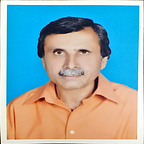What is true wisdom?
Answer is very simple:
The wisest person in the world knows only one thing:
Apparently this quote (and it’s numerous variations) is a famous paradox of knowledge: knowing that we know nothing is in itself a type of knowledge…thus refuting that we know nothing in the first place.
However, what it actually seems to convey is that everything we know is uncertain. It’s not that we literally know nothing — it’s that we can’t know what we know. In other words we don’t or can’t know anything with certainty.
It is also believed that Socrates himself was never found to have said this and the statement is derived from Plato’s accounts of the Greek Philosopher. However, this is recognised as one of the most profound statements and is also often referred to as Socratic paradox.
According to some sources, Plato’s Socratic dialogues some of the most wonderful works in the history of philosophy — feature Socrates in lively conversation on a wide range of subjects, from justice and virtue to art and politics. The central theme in Socrates’s thinking, however, concerned the nature of knowledge — specifically, on how none of us really have any. As a statement often attributed to Socrates puts it:
“True wisdom comes to each of us when we realize how little we understand about life, ourselves, and the world around us.”
If you ask yourself, “do I know what I don’t know?”, it will reveal a whole new world of knowledge to you. Being cognizant of this rudimentary concept is vital in the process of learning. Only by acknowledging that which we do not know can we search out and educate ourselves on the unknown. Moreover, it is accepting that it is ok to admit that you may not know all that you would like or need to know.
Moreover, it is also interesting to know that during Socrates’s life, the Oracle of Delphi proclaimed him the wisest of all people. Socrates, regularly declaring absolute ignorance as he did, could not agree. He therefore set out on a quest to find someone wiser to prove the Oracle wrong.
Socrates approached influential Athenians considered wise by the people of the day — statesmen, poets, and teachers. He conversed with these individuals using what is now known as the Socratic method, a form of cooperative dialogue that uses incisive questioning to stimulate critical thinking and draw out presuppositions.
A more straightforward way to think about the Socratic method is to imagine a relentlessly curious child asking ‘why’ after every single explanation an adult offers, seeking a truly foundational response to a question rather than an endless chain of unsatisfactory causal reasoning.
Below is an examples of this method of inquiry:
Here is another example:
Teacher: What is happening to our global climate?
Stan: It’s getting warmer.
Teacher: How do you know it’s getting warmer? What evidence do you have to support your answer?
Stan: It’s in the news all of the time. They are always saying that it’s not as cold as it used to be. We have all of these record heat days.
Teacher: Has anyone else heard of this kind of news?
Denise: Yeah. I have read about it the newspaper. They call it global warming, I think.
Teacher: Are you saying that you learned about global warming from newscasters? Are you assuming they know that global warming is occurring?
Heidi: I heard it too. It’s terrible. The ice caps in the Arctic are melting. The animals are losing their homes. I think the newscasters hear it from the scientists that are studying the issue.
Teacher: If that is the case and the scientists are telling the newscasters, how do the scientists know?
Chris: They have instruments to measure climate. They conduct research that measures the Earth’s temperature.
Teacher: How long do you think scientists have been doing this?
Grant: Probably 100 years. Candace: Maybe a little more than that.
Teacher: Actually, it’s been studied for about 140 years. Since about 1860.
Heidi: We were close.
Teacher: Yes. How did you know that?
Grant: I just figured that seems like when instruments were available and scientists had the means to measure climate like that.
Teacher: So, looking at the last 100 year’s climate on this graph, what can we say about the earth’s climate?
Raja: The 20th century has become much warmer than previous centuries.
Teacher: Can we hypothesize why?
Raja: One word: pollution.
Teacher: What are you assuming when you say that pollution is the cause for the temperatures to rise?
Heidi: Carbon dioxide from cars causes pollution and chemicals from factories.
Frank: Hair spray causes dangerous chemicals to get into the atmosphere.
Teacher: Okay. Let’s take a minute to review what we’ve discussed so far.
By using his method of bottomless questioning, Socrates soon discovered that, in fact, nobody really knew anything about anything they claimed to know — be it on art, ethics, politics, justice, the self, or the true nature of the world around us. He thus concludes, as reported in Plato’s Apology, that the Oracle of Delphi may have been right in her judgement of his wisdom:
“For my part, as I went away, I reasoned with regard to myself: I am wiser than this human being. For probably neither of us knows anything noble and good, but he supposes he knows something when he does not know, while I, just as I do not know, do not even suppose that I do. I am likely to be a little bit wiser than he in this very thing: that whatever I do not know, I do not even suppose I know.”
In other words, Socrates believes himself to be wiser than those he speaks to because, unlike them, he admits his ignorance.
Content/images sources:
i)
ii)
iii)
